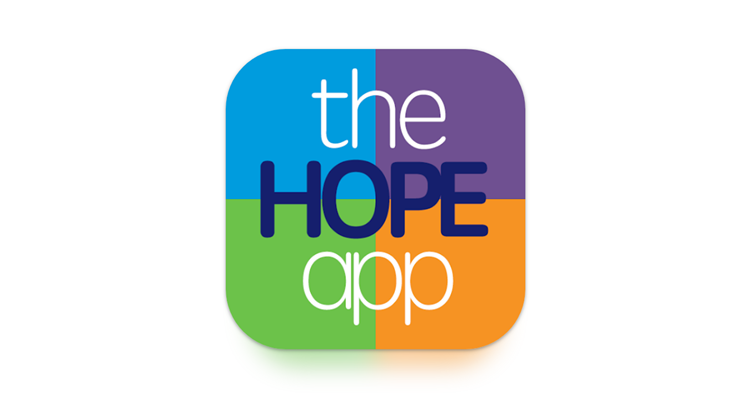
Over 1,100 people have downloaded an app to help reduce drug-related harm in Highland since it was launched three years ago.
The Highland Overdose Prevention and Engagement (HOPE) app was created with input from people with lived experience and a range of experts from NHS Highland and beyond.
Eve MacLeod, Highland Alcohol and Drugs Partnership Co-ordinator, said: “The HOPE app is a source of information for people who use drugs and or alcohol problematically, as well as their families or friends. It helps prevent overdose and encourages engagement with services that can help.
“It contains information on what to do in an emergency overdose situation for both depressant and stimulant drugs. Harm reduction information and details on how to contact a range of support services are also available on the app. We’ve recently added updates, including information on the changing drug market, and the Rapid Action Drug Alerts and Response (RADAR) drug warning system. New benzodiazepines, such as Bromazolam, and potent synthetic opioids called Nitazenes are cause for concern.”
Bromazolam produces strong sedative and sleep-inducing effects. Because of this, there is a high risk of overdose. Overdose signs and response actions for bromazolam are the same as for any other overdose involving depressants.
Because Nitazenes are unexpected in the drug supply, and their high potency, they also have a high risk of overdose, drug-related hospitalisations and drug-related death. Overdose signs and response actions for nitazenes are the same as for any other overdose involving opioids. Naloxone effectively reverses opioid-type drug overdoses. Due to potency, people should be aware that more than one dose may be required. The risk of these drugs is significant, and harm reduction is important to reduce the risk as much as possible.
Rapid Action Drug Alerts and Response (RADAR) is Scotland’s early drug warning system. RADAR identifies risks quickly, and informs rapid action to reduce harm and save lives. Anyone can share information about drugs with RADAR, including adverse effects, drug appearance, patterns of use, routes of administration and testing data. However, in an emergency, always dial 999.
The app provides useful information on signs that someone may be having an overdose. It is hoped that raising awareness of these signs and symptoms, such as snoring, can help prevent drug-related deaths in the future.
Eve continued: “We know that most overdoses are accidental, and most happen because of a combination of depressant drugs have been used (for example alcohol, benzodiazepines, and heroin).
“There are certain things that show us someone may be having a depressant drug-related overdose. One of these is if the person is snoring. Don’t ignore someone that is snoring and gurgling if they have taken depressant drugs.
“This could be a sign of a significant and life threatening emergency. Don’t leave people to sleep it off, check on them and if they don’t wake, dial 999 for an ambulance and administer naloxone if you have it. There’s more advice and detail in the app.”
“The HOPE app will complement and strengthen local action to improve the health and wellbeing outcomes for people who use drugs and help to reduce the risk of harm and death.
“Scotland faces unique challenges from a number of factors, such as high-risk patterns of drug use; a high-risk cohort of vulnerable people; stigma as a barrier to treatment and underlying problems such as poverty and inequality.
“The HADP urges all our partners and members of the public to continue to use the app and become overdose aware. We all have a role to play in reducing drug deaths.”
The HOPE app is free to download, and is available from Android and Apple.
Read more from NHS Highland about drug and alcohol recovery.
